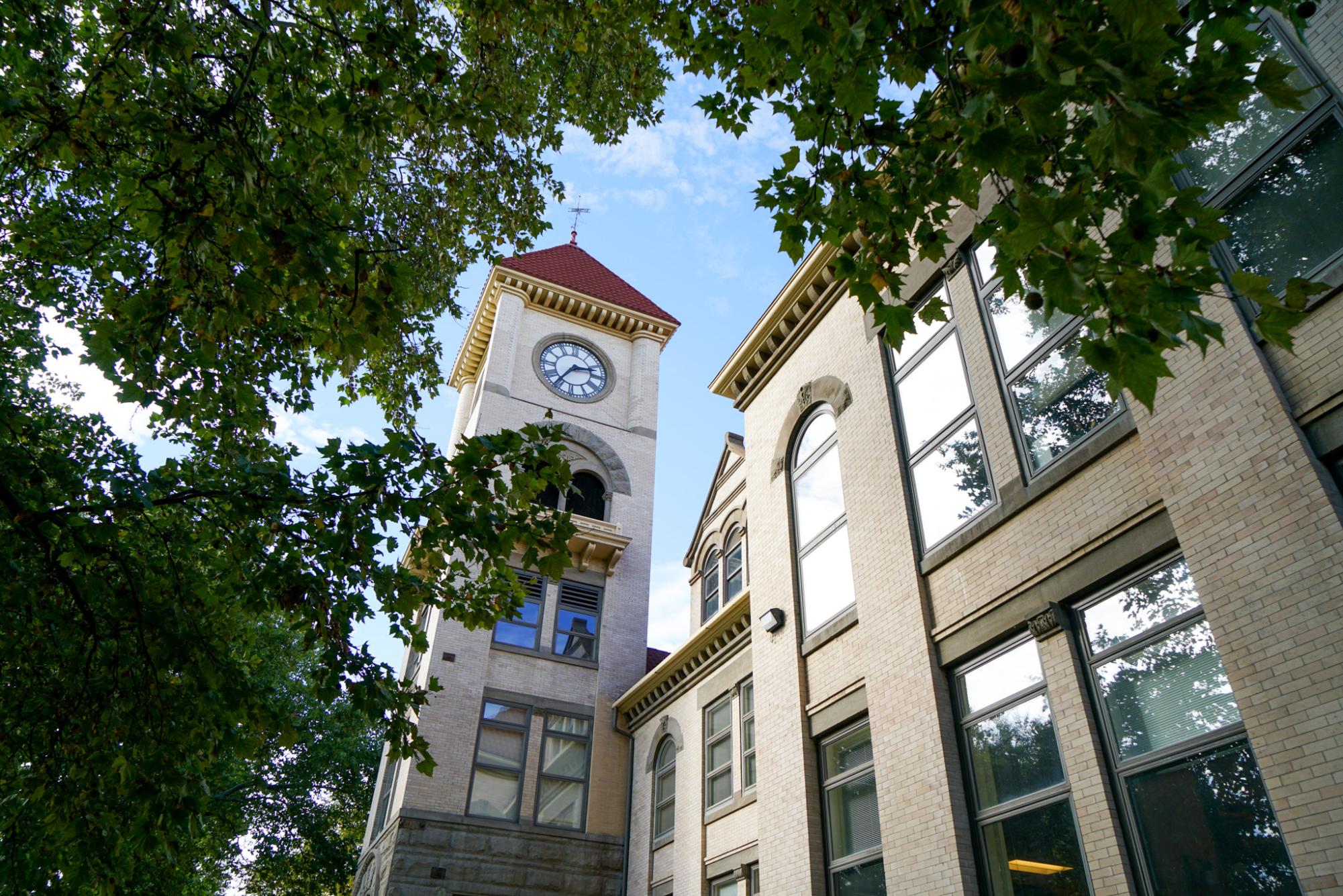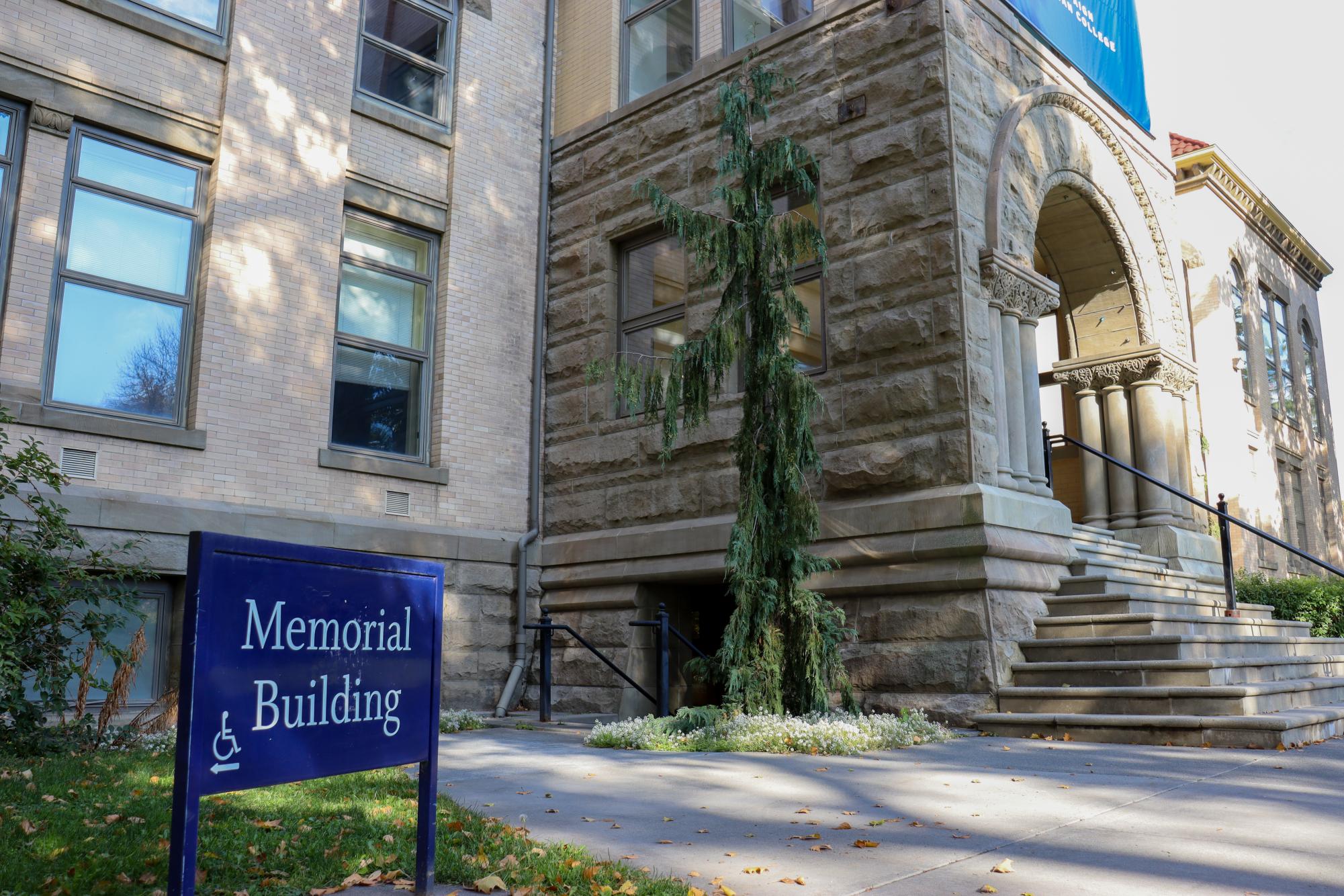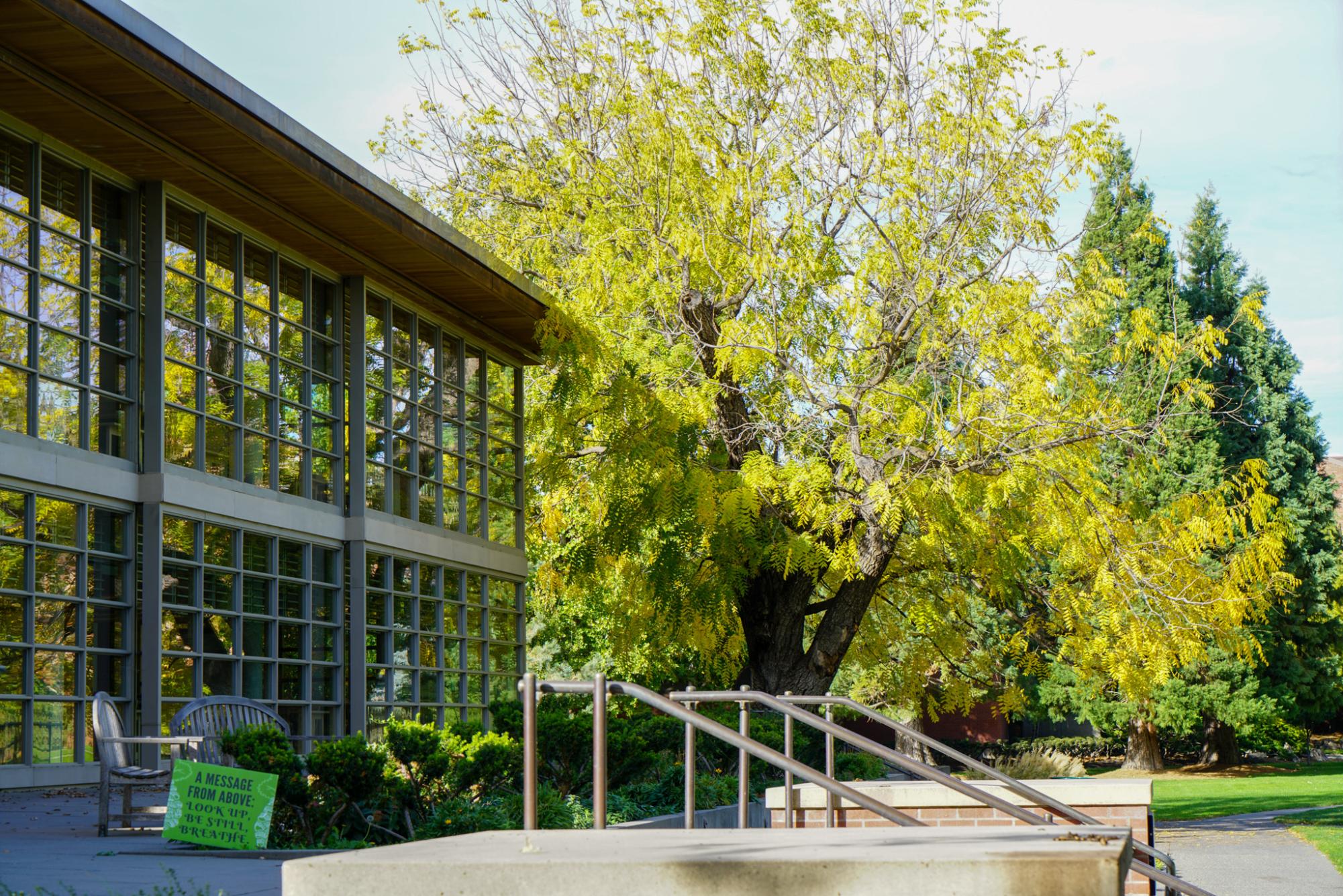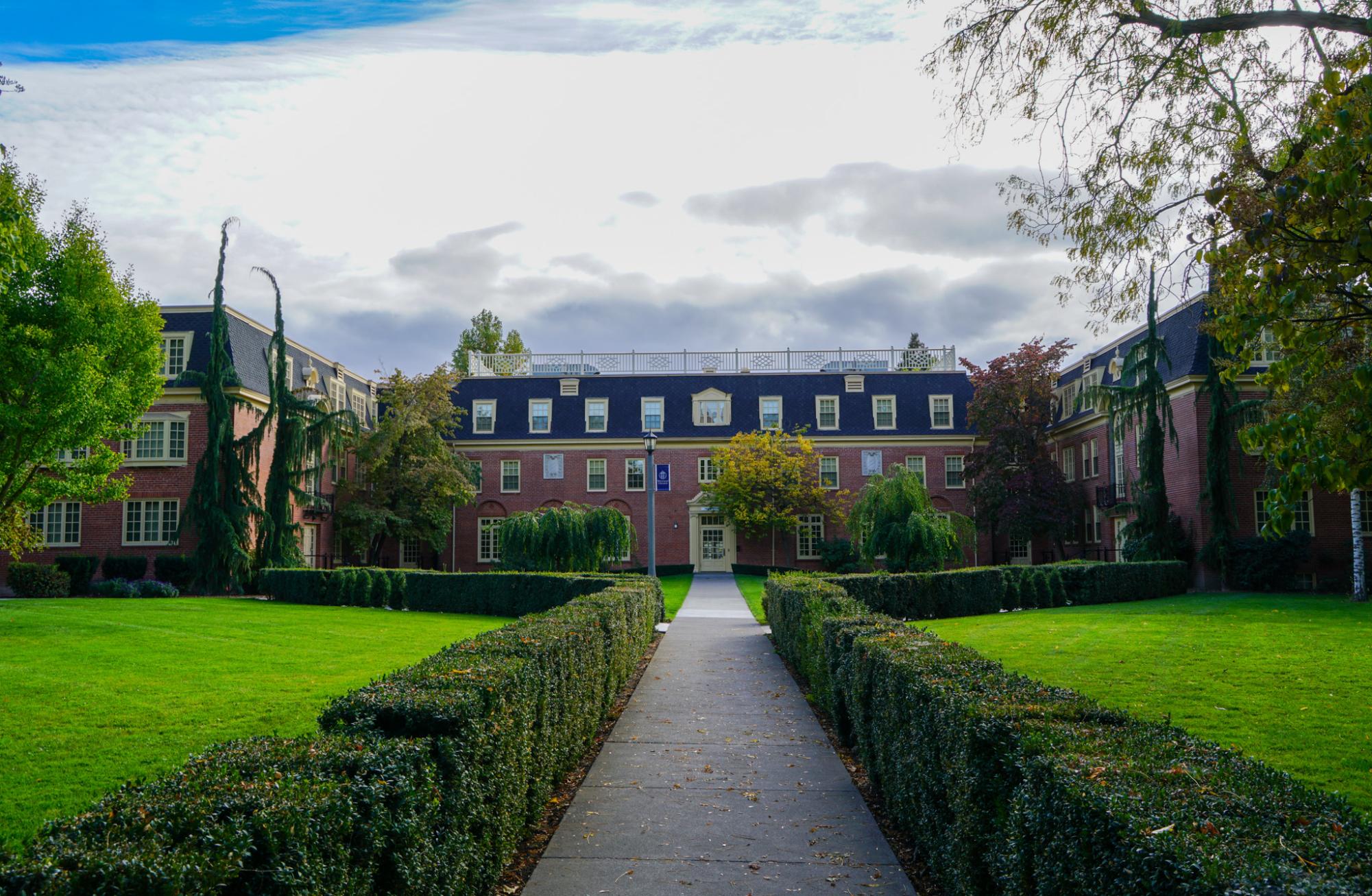
Whitman College is named after a colonialist legend. Marcus Whitman – missionary, doctor, ‘pioneer’ – is best known not for his accomplishments in life, but for the circumstances of his death. In 1847, after over a decade of unsuccessful attempts to convert the local Cayuse tribe to Christianity, a group of Cayuse men killed Marcus and Narcissa Whitman and 11 others at the Whitman Mission. This event became known as the ‘Whitman Massacre’ and gave the United States government an excuse to launch a violent campaign, now remembered as the Cayuse War, against the Native tribes of the Northwest. Marcus Whitman’s legacy is synonymous with violence, oppression and colonialism.
These are complex issues and histories, and I can’t even begin to provide a full scope in a short article. So, this article isn’t really about Marcus Whitman, or about the Cayuse War or even about colonialism. The ‘Whitman’ in Whitman College is just a prime example of this article’s interest: weighty history that hangs off the names we give to places.
A majority of Whitman students seem to feel that the name of a place has power. In a survey I sent out to the student body, over 80 percent of respondents said that they felt that place names have an impact on the people who inhabit them. However, the degree to which that impact exists varies from person to person.
For sophomore Em De La Cruz Hofer, the name of a place absolutely has an effect.
“I, personally, would feel very … it would definitely feel unsettling if, for example, I went to a school named after a Confederate general […] It ties a lot of emotions together with place,” De La Cruz Hofer said.
Junior Noelle Texidor said that, “A name of a place doesn’t necessarily affect someone’s thoughts about it unless they know the history behind that name.” Having grown up only a few miles from the Umatilla reservation, interacting with members of the Confederated Tribes of the Umatilla Indian Reservation (CTUIR), Texidor says that for her, knowing the history behind place names is important. However, she acknowledges that it can be less relevant for people with different backgrounds; if they don’t know the whole story, they cannot understand the historical connotations tied to certain names.
Junior Elizabeth Huang presents a different perspective.
“In terms of actual experience associated with that place, [a place name] doesn’t really have an effect. It’s more about how I present that place to other people and how willing I am to present that place to other people,” Huang said.
I can relate to what Huang is describing here – while my own day-to-day experience at Whitman College isn’t necessarily affected by the history of Marcus Whitman, I do feel ashamed when family members and high school friends ask me who my school is named after, expecting that Whitman’s namesake is Walt Whitman. There isn’t a great poet behind our school’s name. There is a massacre – a massacre of 13 settlers at the Whitman mission, and of thousands of Native people in the years before and after. Maybe the ghost of Marcus Whitman doesn’t loom over every minute of every day here at Whitman College, but to acknowledge his existence is to summon the bloodied past. Choosing his name to represent our institution holds some amount of power.
De La Cruz Hofer’s First-Year Seminar class focused on land acknowledgements and inspired discussion about place names. The link between these topics isn’t coincidental. Whitman College has made an effort to acknowledge the land our campus is built on, but a huge part of land acknowledgment has to do with how we refer to a place.
For example, in the country we commonly know as New Zealand, there is an ongoing movement to change its name to Aotearoa, the indigenous M?ori name for the land. One of the many ways that colonial powers exert their authority over colonized lands is by imposing exonyms, non-native titles for places and people groups. By stripping away the identity a Native group has given to their land and imposing new names and boundary lines, colonial powers forcibly seize sovereignty of that land.
While the name of our town, Walla Walla, pays homage to one of the local tribes, neither the city nor the college has retained many other Native names or made an effort to uplift them. Of the over 50 named places marked on the Whitman College campus map, not a single one is named in honor of a Native tribe, person or endonym. While Whitman as an institution has been diligent about land acknowledgment at events and in official media releases, the campus itself is made up of buildings named after former presidents, faculty, famous alumni, donors and colonizers. Stephen B. Penrose and Narcissa Prentiss Whitman have two buildings each that honor or recognize them in some way: Penrose Library and Penrose House, and Prentiss and Whitman Memorial Building, respectively.
Does the problematic history behind these names mean we need to change them? Em De La Cruz Hofer, Noelle Texidor and Elizabeth Huang all feel conflicted.
“I think for the most part, changing names for specific historical sites is important if people are trying to be historically accurate in what actually happened and giving a name to those places,” Texidor said. “But if it’s just changing solely to be more inclusive because people want to be perceived as more ‘woke,’ then I think that’s really petty in a way.”
Huang shared a similar sentiment.
“I don’t think changing the name of something is really gonna solve big problems. Like, that’s not really tackling the existing systems that are in place, and the power structures,” Huang said. “I’m not saying that it’s a waste of time to change a name, but at the same time, I think advocating for the change of a name is a really great opportunity for performative activism and a really easy way for people to just grace the surface of something without actually tackling the heart of the problem.”
De La Cruz Hofer feels that while a name change can be a positive thing, it can’t stand on its own.
“I would say it’s definitely a step in the right direction, for sure. But that’s not the first and only step. It’s kind of like how acknowledgement is not the only step either, since beyond acknowledgement […], we can factor in Indigenous communities into figuring out what would be reparative and logical to do for them. So changing the name is an acknowledgement, but there’s extra that has to be done.” De La Cruz Hofer said.
While it’s difficult for her to feel at peace with the current name, De La Cruz Hofer knows it’s a complex process. “It’s just really tough to rewrite history, no matter how hard you try. I think in most cases, a name change would be the right step […] But if we were to change the name of the college, we can’t just do it ourselves, because I feel like we’re almost bound to mess up.”
This isn’t an issue with a clear or easy solution. I don’t think that most Whitman students would call for the school’s name to be changed, even if they felt strongly about the harm that the Whitmans helped create. Changing the name might come across as empty and performative, even causing more harm in the long run, unless it was a carefully planned move, done in close collaboration with the CTUIR.
75 percent of people who responded to The Wire’s survey said that they remembered going to at least one event that taught them some of the history of the CTUIR and the Whitmans during their orientation week. If Whitman wasn’t called Whitman anymore, would the school still feel the same need to hold these events where we get to learn what happened on this land? I had never even heard of Marcus Whitman before my orientation; 32 percent of survey respondents were with me, and 61 percent said they’d only known vague details.

The school being established in honor of Marcus Whitman is a vital part of its history. The Memorial Building, which most people call ‘Mem,’ was named specifically to memorialize Marcus and Narcissa Whitman. It now acts as the administrative heart of the school, and is the most recognizable and merchandised building on campus. By changing its name, would Whitman College be trying to cover up its history?
So, what then? If the name is problematic, but we probably won’t change it, where does that leave us? For many students, while the origin of a place name can hold a negative connotation, their positive experiences in that place help to give it a new meaning.
Huang says that the historical meaning of a place doesn’t necessarily control its present significance. “I think Whitman can transcend that name. I don’t know to what extent that they have, but I definitely see progress towards that or a desire, at least for a lot of the students, to move away from that.”
To Texidor, both the past and the present are very important. “I still really love this college even though there’s a lot of negative history around it. So yeah, I think there is potential to still enjoy and appreciate a place even though it has negative and positive history.” Later in the interview, she expanded on this idea. “The name will always be tied to a place. But I think if we try to relate history that is positive to that name, it can really help change how people see a place and the name itself.”

There’s a lot of joy to be found at Whitman College, regardless of the ugly history that lurks behind some of the names honored on our campus. Prentiss is Narcissa Whitman’s maiden name, but it’s also a safe space for many female-identifying and/or presenting people on campus, and (at least in my experience) a lovely place to live. Stephen B. Penrose refused to let actual Native people speak at the unveiling ceremony for Treaty Rock, but Penrose Library provides a wonderful space for our community to study, meet and learn. Whitman College is a flawed institution, yes, and it’s fair to say there is a lot more that the school could do to acknowledge and uplift Native communities. But it’s a place that has grown into much more than its name. Marcus Whitman is a colonialist legend. Whitman College is a place where we can learn why that’s a bad thing.








